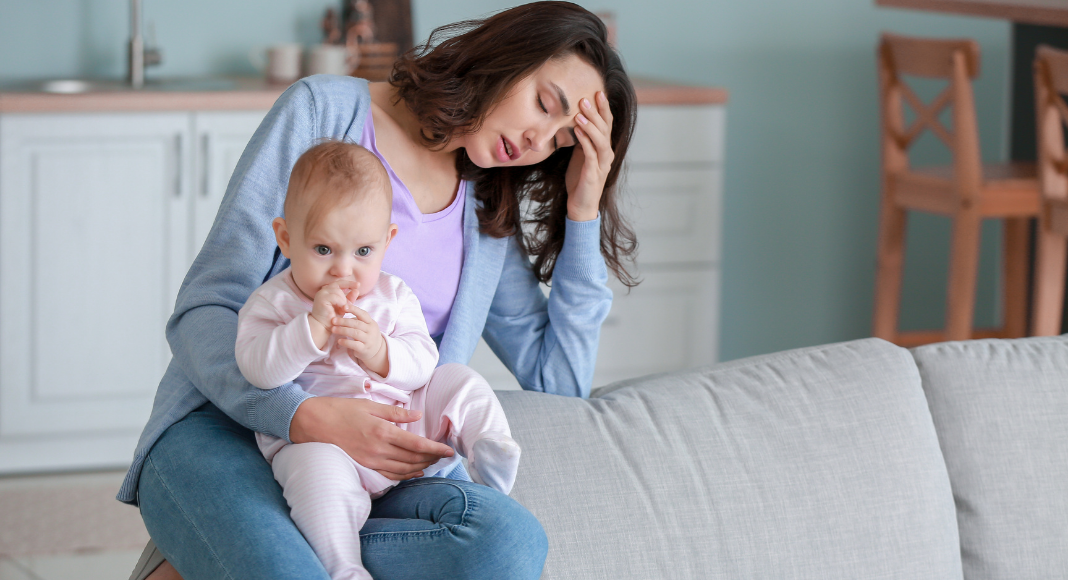*Thank you to contributors Tina Plemmons and Amber Weakley for co-writing this informational article!
Have you ever snapped at your partner or cried for no reason and were told you were “just being hormonal?” Hormones unfortunately get blamed for all the negative effects they can bring when in reality, our entire being is driven by these little messengers. Truthfully, everyone is hormonal, not just women.
When’s the last time you heard a man being accused of being “too hormonal?” When did these chemical signals in our bodies become such criminals?
Women’s hormones are usually put on blast the most around pregnancy. The miracle of creating life wouldn’t be possible without these hormones; they have to surge to the highest levels in a woman’s life during pregnancy to support growing a tiny human. There is such a dramatic shift in hormone levels in a short period of time while pregnant or postpartum that this can disrupt how women feel and often make them second guess what’s going on in their own bodies.
In the first trimester of my recent pregnancy (Tina here), I knew my nausea and mood changes were because of the hormone spike needed to keep my baby alive. But then when I had a short fuse, I often brushed it off as “oh, my hormones are just raging right now.” After I brought the baby home and was struggling with a lack of sleep and a healing body, I felt overwhelmed. Luckily, I was able to recognize when I felt a little off and use my support and coping mechanisms to overcome it.
 It can be easy to brush off these feelings as just being “hormonal” but what about when they overwhelm you and consume you?
It can be easy to brush off these feelings as just being “hormonal” but what about when they overwhelm you and consume you?
This feeling may be a sign of a more serious and treatable condition like postpartum depression or anxiety. You may think that you need to be prescribed hormones to “balance you out” but you may benefit from more personalized help for what you need. Your OBGYN understands your history and needs and can discuss the most appropriate treatment for you. There are also several community resources available to help support you!
The Reality of Postpartum Depression and Anxiety
Approximately 1 in 5 mothers will experience a maternal mental health concern either during their pregnancy or postpartum. Of these women, only about 15% of them reach out and ask for help. That means the majority of moms who struggle with a variety of maternal mental illnesses are left untreated.
So let’s maybe not blame hormones for our mental health.
Instead, let’s look at the variety of other risk factors that come into play when we are experiencing these unwanted symptoms. First off, if you have a prior history of mental health concerns, you might be at risk during and after your pregnancy. Other risk factors include a family history of mental health concerns, complications during pregnancy (IVF or miscarriages), low social support, difficulty breastfeeding, lack of sleep, thyroid concerns, financial stress, and even low self-esteem. And that’s not the entire list.
As you can see, it’s not just hormones. It’s really not even just one factor. So many things come into play when a mother is diagnosed with a maternal mental illness. Even though it’s easy to blame our hormones, we really should take a step back and clarify that a maternal mental illness is not any mother’s fault.
If you do find yourself struggling, don’t be scared to reach out for help. Don’t be part of the 75% of moms who leave their symptoms untreated and struggle for years. You are not alone in this.
Postpartum Support Charleston is a local nonprofit organization that provides support for moms who are struggling with maternal mental illness in the Charleston area. In addition to providing resources for medical and therapeutic help, they provide an outstanding community of support including a variety of weekly support groups, Mom Mentors, and a private Facebook group just for mothers. Their Beyond Delivery program also provides new moms up to a year postpartum with a homemade lasagna and infant care package delivered right to your door – free of charge.
Hormones are important in our mental health, yes, but they are not the sole aspect to blame for a maternal mental health concern. Tossing your symptoms out the window and writing them off as “just hormones” might be easy, but it’s not helpful.
Reach out for support. We are here to support you.












